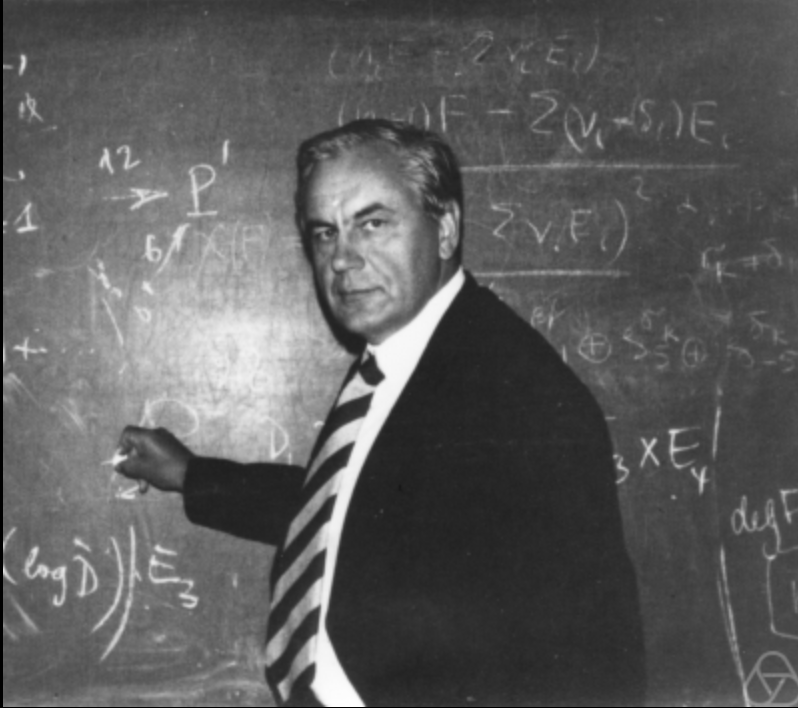The Demands of the Socialist Parties: Analysis by Igor Shafarevich.

For many people, political parties, are an embarrassing malady of society akin to hemorrhoids for a person.
But why do political parties even exist? James Madison observed that "As long as the reason of man continues fallible, and he is at liberty to exercise it, different opinions will be formed." This liberty combined with opinion produces parties as people naturally gravitate toward the like-minded.
"There are . . . two methods of removing the causes of faction," Madison continued, "the one, by destroying the liberty which is essential to its existence; the other, by giving to every citizen the same opinions, the same passions, and the same interests." The second remedy, of course, is impossible, but he warned that "It could never be more truly said than of the first remedy, that it was worse than the disease. Liberty is to faction what air is to fire, an aliment without which it instantly expires. But it could not be less folly to abolish liberty, which is essential to political life, because in nourishes faction, than it would be to wish the annihilation of air, which is essential to animal life, because it imparts to fire its destructive agency."
Societies, then, seem to be stuck with political parties. But is there a difference between parties in socialist states and capitalist countries? Igor Shafarevich has some insights.
August Glen-James, editor
Piatakov reminded him of Lenin’s statement that the “dictatorship of the proletariat is a regime implemented by the party, which relies on violence and is not bound by any law.” Piatakov explained that the central idea here was not “violence” but the fact of being “unbounded by any law.”
We shall point out only one more crucial peculiarity of socialist states, something that has no analogy in capitalist society: all socialist states are based on a “new type” of party. We have here a phenomenon that is completely different, despite its name, from the political parties of bourgeois society. Members of liberal or radical parties are united by a desire to realize definite political or economic ends, without circumscribing their conduct or views in other areas. In this sense, they are guided by the same kind of principles as trade unions or animal protection societies. The “new type” of party, however, not only demands that its members subordinate all aspects of their lives to it, but also develops in them an outlook according to which life outside the party seems in general unthinkable. The spirit of the special relationship that exists between the individual and the party may be gleaned from the following three examples.
A German essayist, W. Schlamm, relates that in 1919, at the age of fifteen, he became a “fellow traveler” of the Communists but never managed to penetrate into the narrow circle of the party functionaries. Twenty years later, one of these functionaries, who had broken with the party, explained to Schlamm the reason why. When Schlamm was invited to join the party, he had said: “I’m ready to give the party everything but the two evenings of the week when I listen to Mozart.” This answer proved fatal! A man who has interests he does not wish to subordinate to the party does not fit.
Another aspect of the relationship between party and individual is revealed by Trotsky’s last speech at a Party Congress. He had already been defeated by his opponents. He said: “I know that it is impossible to be right against the party. It is possible to be right only with the party, for history has created no other road for the realization of what is right.”
Finally, here is how Piatakov, already expelled from the party and in disgrace, described his view of the party to his former party comrade Valentinov. Piatakov reminded him of Lenin’s statement that the “dictatorship of the proletariat is a regime implemented by the party, which relies on violence and is not bound by any law.” Piatakov explained that the central idea here was not “violence” but the fact of being “unbounded by any law.” He says:
Everything that bears the imprint of human will must not and cannot be considered inviolable or tied to any insuperable law. A law is a limit, a ban, a definition of one phenomenon admissible and another inadmissible, one action possible and the other impossible. When thought holds to violence in principle and is psychologically free, unbound by any laws, limits or obstacles, then the field of possible action expands to gigantic proportions and the field of the impossible contracts to the point of zero. Bolshevism is a party whose idea is to bring into life that which is considered impossible, not realizable and inadmissible. . . For the honor and happiness of being in its ranks we must sacrifice our pride and self-esteem and everything else. Returning to the party, we put out of our heads all convictions condemned by it, even though we defended them while in opposition. . . . I agree that non-Bolsheviks and the category of ordinary people in general cannot make any instantaneous change, any reversal or amputation of their convictions. . . . We are a party of men who make the impossible possible. Steeped in the idea of violence, we direct it against ourselves, and if the party demands it and if it is necessary and important for the party, we can by an act of will put out of our heads in twenty-four hours ideas that we have cherished for years. In suppressing one’s convictions or tossing them aside, it is necessary to reorient oneself in the shortest possible time in such a way as to agree, inwardly, with one’s whole mind. . . . Is it easy to put out of mind things that only yesterday you considered to be right and which today you must consider to be false in order to be in full accord with the party? Of course not. Nevertheless, through violence directed against oneself, the necessary result is achieved. Giving up life, shooting oneself through the head, are mere trifles compared with this other manifestation of will. This sort of violence against the self is acutely painful, but such violence with the aim of breaking oneself so as to be in full accord with the party constitutes the essence of a truly principled Bolshevik Communist. I am familiar with objections of the following kind. The party may be absolutely mistaken, it is said, it might call black something that is clearly and indisputably white. To all those who try to foist this example on me, I say: Yes, I shall consider black something that I felt and considered to be white, since outside the party, outside accord with it, there is no life for me.
Some entomologists believe that the functioning of a beehive can only be understood in terms of a superorganism having its own metabolism and respiration and capable of reproduction and of the kind of action quite impossible for individual bees (for instance, holding the temperature within to the necessary narrow range around 34° C.). The existence of each bee has meaning only to the extent that it is involved with the life of the entire hive. We are no less justified in considering the parties of the socialist states to be similar superorganisms capable of performing actions impossible and unthinkable for its individual human cells. Their life has meaning only when they are carrying out the aims of the superorganism without which they cannot exist.
The presence of such a party seems to be a necessary condition for the existence of all socialist states of the twentieth century, while in capitalist countries it serves as one of the main instruments of destruction. This points to cardinal differences between the two social structures.
